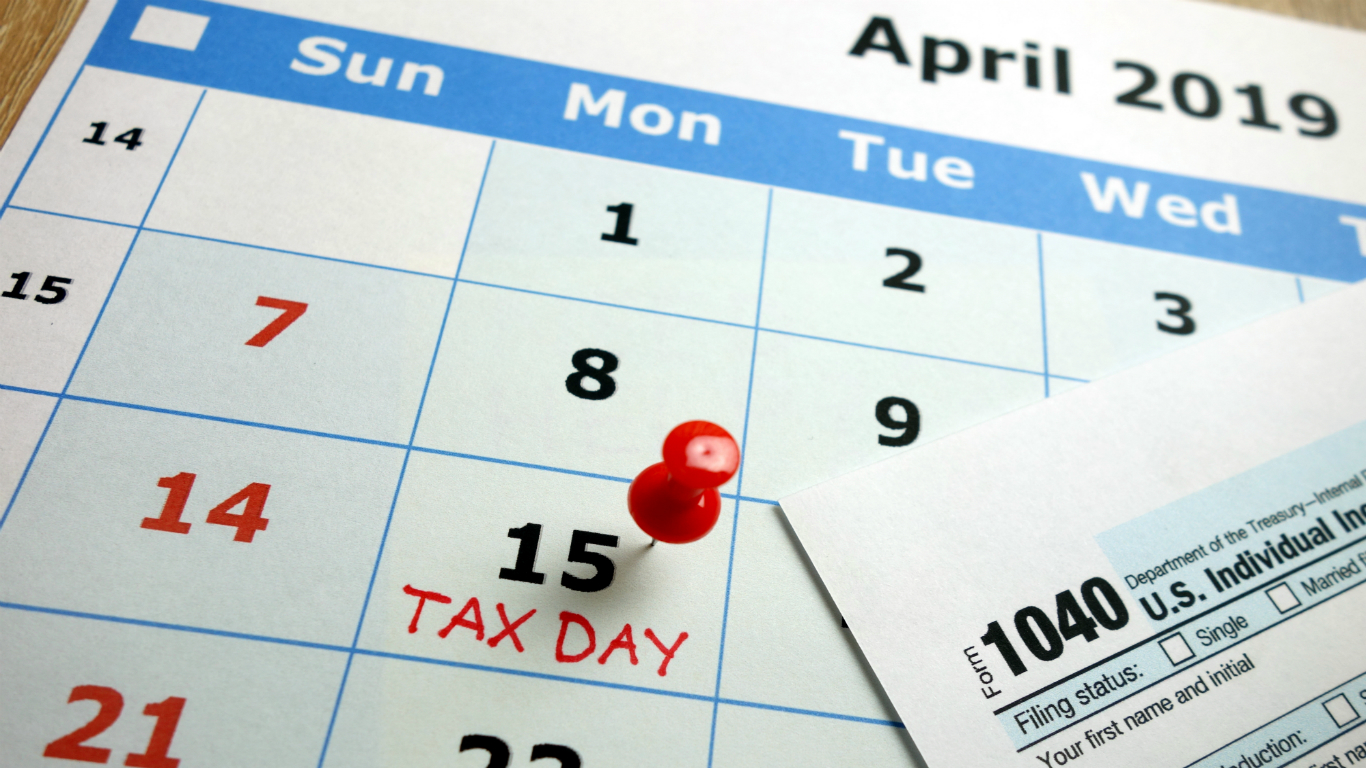Special Report
This Is Why April 15 Is the Last Day to File Your Taxes

Published:
Last Updated:

Don’t look now, but Tax Day is just around the corner. The hard, IRS-enforced income-tax return deadline leaves perennial procrastinators scrambling every year — even though the April 15th deadline was specifically chosen to avoid a last-minute filing frenzy.
As some older Americans may remember, April 15th has not always been Tax Day in the United States. The federal government did not even levy an individual income tax until 1861, when President Lincoln imposed a 3% tax on annual incomes of at least $800 to fund the Union war effort. Ten years later, Congress repealed the tax.
In the ensuing decades, the federal government derived most of its revenue from tariffs and excise taxes. The result: the American working class shouldered a disproportionate share of the tax burden, and progressives began pushing for more equitable tax policy.
On Feb. 3, 1913 — with the ratification of the 16th Amendment — they got their way. The amendment granted the federal government the authority to levy an income tax, which it did the following year. The 1914 deadline to file income taxes was March 1st. No official justification for the specific deadline selection was provided.
Four years later, the deadline was moved to March 15th, where it remained until the Internal Revenue Code of 1954 pushed Tax Day to the now familiar April 15th. The extension was implemented not only to ease pressure on tax payers and accountants in the face of increasingly complex tax policy — but also to spread out the return processing season for the IRS.
This year, the more than 14 million Americans who are expected to file after the April 15th deadline calls into question the wisdom of mid-20th century lawmakers. Even those who do file on time are susceptible to several common tax mistakes — which can increase the likelihood of an audit.
Penalization for late payments is a two-way street, however. Just as Americans who fail to file by April 15 must pay interest on outstanding taxes owed, the IRS is also legally obligated to pay interest on refunds not issued within 45 days.
Want retirement to come a few years earlier than you’d planned? Or are you ready to retire now, but want an extra set of eyes on your finances?
Now you can speak with up to 3 financial experts in your area for FREE. By simply clicking here you can begin to match with financial professionals who can help you build your plan to retire early. And the best part? The first conversation with them is free.
Click here to match with up to 3 financial pros who would be excited to help you make financial decisions.
Thank you for reading! Have some feedback for us?
Contact the 24/7 Wall St. editorial team.